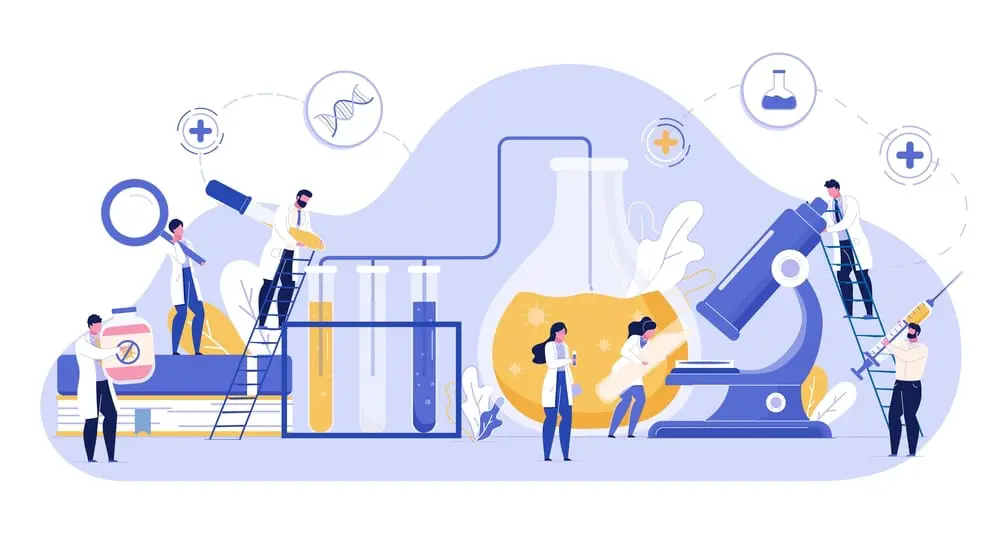The COVID-19 pandemic has people around the world clamoring for a vaccine – but it also has patients justifiably concerned about the efficacy and side effects of a potential treatment. research studies are key to both of those concerns. Today we’re exploring the importance of research studies as they pertain to society as a whole.

The Importance of Clinical Research Studies
What Are Clinical Research Studies?
First, let’s review the basics of research studies. research studies seek to improve medical protocol, which includes preventing, diagnosing, and treating disease. When research studies come to mind, most people immediately think of drug trials. And it’s true: The Food and Drug Administration (FDA) does mandate that every drug and procedure used in the treatment of disease undergo a series of research studies. However, research studies also test other innovative treatments and protocols, including medical devices and clinical procedures. trials assess these products and methods and weigh their results against current medical standards.
Clinical Research Studies May Keep Patients Safe
Every product used in clinical healthcare practice has been rigorously tested in multiple phases of research studies to ensure both safety and efficacy. Take, for example, clinical vaccine development, which is a three-phase process. According to the Centers for Disease Control and Prevention (CDC), every vaccine on today’s market must go through three steps of research studies: Phase I, in which small groups of people receive the trial vaccine; Phase II, in which the study expands to include more relevant patient demographics; and finally, Phase III, in which the vaccine is given to thousands of people before it can be deemed safe by FDA.
Clinical Research Studies Eliminate Bias
Whether due to the influence of drug companies or personal clinical experience, all physicians have to work to reduce their personal bias when treating patients. research studies help eliminate physician bias in several ways. First, trial results establish the safety and efficacy of a new treatment. Second, they help doctors decide if the side effects of a new treatment are acceptable when weighed against the benefits. Finally, research studies help researchers compare and contrast medications, which may lead to better outcomes for patients.
Clinical Research Studies Respond to Global Healthcare Crises
The COVID-19 crisis is another example that illustrates the importance of research studies in real time. As demand for a preventative COVID-19 treatment grows, patients are rightly concerned about side effects and treatment efficacy. However, clinical research study protocols exist specifically to prevent hasty, potentially harmful treatments from being released until they have been adequately developed. In early July, the COVID-19 Prevention trials Network (COVPN) was established by merging four existing clinical research study networks: the HIV Vaccine trials Network (HVTN), the HIV Prevention trials Network (HPTN), the Infectious Diseases Clinical Research Consortium (IDCRC), and the AIDS Clinical Research Studies Group. These individual networks are currently working together to increase the medical community’s knowledge about COVID-19. This example illustrates how one clinical research study has the potential to impact thousands – even millions – of lives.
Clinical Research Studies May Improve Lives
In the end, all research studies have one goal: to improve the lives of patients. research studies work to achieve this objective in several ways, evaluating every aspect of patient care from treatment efficacy to side effects. research studies also improve the lives of nontraditional patients who may find themselves on the fringe of medical research – like pediatric patients, for example. Since so few products are labeled for pediatric use, doctors often find themselves giving children products that are only licensed for adults. research studies help doctors evaluate pediatric-specific treatments to improve outcomes for children with acute and chronic conditions.
_____
The importance of research studies can’t be overstated. At their core, research studies seek to improve lives – whether through informing care providers of new side effects or through confirming the efficacy of the long-awaited COVID-19 vaccine.
About QPS Missouri
Have you ever thought about participating in a clinical research study? You could be a part of history! And QPS Missouri is looking for new participants. Since opening its doors in 1994, QPS Missouri has conducted over 2,100 FDA-regulated studies, paying out over $35 million to local participants. Your local participation could have a global impact, as QPS is an international leader in contract research with facilities in North America, Europe, and Asia. Our mission is to accelerate the development of drugs worldwide by enabling breakthroughs in pharmaceutical innovation. If you would like to join us in this mission, consider applying for a clinical research study.
To get started, you simply need to fill out an online application. Within 48 business hours, a recruiting coordinator will contact you for your pre-screening assessment. To learn more, please visit the QPS Missouri website, review the study participation process, or check out our list of FAQ.
